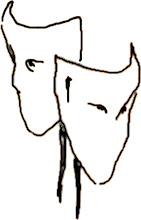This is one that many readers will likely already be familiar with. I first read it myself back when I discovered my own love for poetry, thumbing through my mother’s old copy of One Hundred and One Famous Poems, which I had discovered on a dusty bookshelf. I have posted it here because so much about Kipling’s work is emblematic of the Victorian mindset and preoccupations – like his total immersion in “orientalism” in Just So Stories and The Jungle Book series, or the distinctly British imperialist perspective touted in works like The White Man’s Burden. I have written before how the societal changes brought on by Victorian industrialization helped give birth to concept of the self-made man – an ideal which each of the characters in Sherlock Holmes must, in part, define themselves in relation to.
Rather than endeavor to expound upon just what I think this ideal means myself, I’ll let Kipling, whose words won him a Nobel Prize for doing so, cover this one:
IF—
by Rudyard Kipling
If you can keep your head when all about you
Are losing theirs and blaming it on you;
If you can trust yourself when all men doubt you,
But make allowance for their doubting too;
If you can wait and not be tired by waiting,
Or, being lied about, don't deal in lies,
Or, being hated, don't give way to hating,
And yet don't look too good, nor talk too wise;
If you can dream—and not make dreams your master;
If you can think—and not make thoughts your aim;
If you can meet with triumph and disaster
And treat those two imposters just the same;
If you can bear to hear the truth you've spoken
Twisted by knaves to make a trap for fools,
Or watch the things you gave your life to broken,
And stoop and build 'em up with wornout tools;
If you can make one heap of all your winnings
And risk it on one turn of pitch-and-toss,
And lose, and start again at your beginnings
And never breathe a word about your loss;
If you can force your heart and nerve and sinew
To serve your turn long after they are gone,
And so hold on when there is nothing in you
Except the Will which says to them: "Hold on";
If you can talk with crowds and keep your virtue,
Or walk with kings—nor lose the common touch;
If neither foes nor loving friends can hurt you;
If all men count with you, but none too much;
If you can fill the unforgiving minute
With sixty seconds' worth of distance run -
Yours is the Earth and everything that's in it,
And—which is more—you'll be a Man my son!





